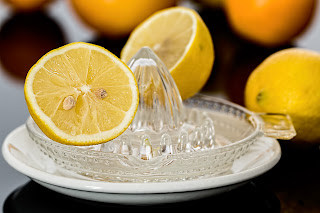Liver is a vital organ located in the upper right abdomen.Liver is a vital organ located in the upper right abdomen.The liver seperates nutrients and waste as they move through your digestive system.It also produces a substance that carries toxins out of your body and aids in digestion.
Liver disease refers to any condition that affects the normal functioning of the liver, a vital organ located in the upper right abdomen.
Causes of Liver Disease:
Different types of liver disease result from different causes. Liver disease may result from
a) Viral Infections:
Hepatitis A, Hepatitis B , hepatitis C are diseases caused by the viral infection.
b) Consuming execessive alchohol.
c) Problems with immune system.
d) Genetic Disorders: Some liver problems develop because of the genetic condition.
e) Cancer.
Symptoms of Liver Disease:
Some common symptoms of Liver disease includes
a) Jaundice.
b) Fatigue and Weakness.
c) Abdominal pain and swelling.
e) Nausea and vomiting.
g) Swelling in the legs and ankles.
Treating Liver Disease:
The treatment of liver disease depends on the specific underlying cause and the severity of the condition. Here are some common approaches used in the management of liver disease:
You can plan your diet to manage certain types of liver disease. If you have fatty liver disease; avoiding alcohol, limiting fat and calories and increasing fiber intake can certainly help.
b) Medications:
Various medications may be prescribed to manage specific symptoms, slow down the progression of the disease.
c) Liver Transplant:
When liver disease progress to the liver failure, a liver transplant may be the best treatment option. A transplant replaces your liver with the healthy liver.
Preventing Liver Disease:
Preventing liver disease involves adopting a healthy lifestyle and taking certain precautions to reduce the risk of liver damage. Here are some key strategies for liver disease prevention:
1. Limit alcohol consumption:
Excessive alcohol intake is a leading cause of the liver disease. To prevent alcohol related liver disease, it is important to consume alchohol in moderation or avoid it altogether.
2. Get Vaccinated:
Vaccinations are available for hepatitis A and hepatitis B. Getting vaccinated can provide protection against these viral infections, reducing the risk of developing liver disease associated with these viruses.
3. Practice Good Hygeine:
Maintain good personal hygiene practices, such as regular handwashing, to reduce the risk of contracting infections that can affect the liver.
5. Practice proper food hygeine:
Ensure that food is properly cooked and stored to minimize the risk of foodborne infections that can affect the liver, such as hepatitis A. Follow these steps for maintaining food hygeine.
a) Wash your hands.
e) Use clean utensils and surfaces.
f) Drink safe water.
g) Limit salt intake.
h) Stay hydrated.
6. Practice safe handling of chemicals:
Exposure to certain chemicals, toxins, and medications can cause liver damage. Follow safety guidelines when handling chemicals and medications,and take precautions to minimize exposure to toxins in the environment.
7. Limiting consumption of red meat:
Try to minimize the consumption of red meat as much as possible. Limiting the consumption of red meat can be beneficial for the kidney health . Some processed red meats such as sausages are high in sodium.A sodium diet can raise blood pressure and increase the risk of kidney damage.Lowering red meat consumption can help reduce overall sodium intake .You can replace red meat with poultry ,fish in your daily diet.
8. Regular health checkups:
Regular medical check-ups can help monitor liver health and detect any potential issues early on. Here are some recommended health check up to be consider.
b) Urine analysis.
c) Blood Tests.
d) Cholesterol levels.




.jpg)


.jpg)







.jpg)
.jpg)



.jpg)






.jpg)






.jpg)


